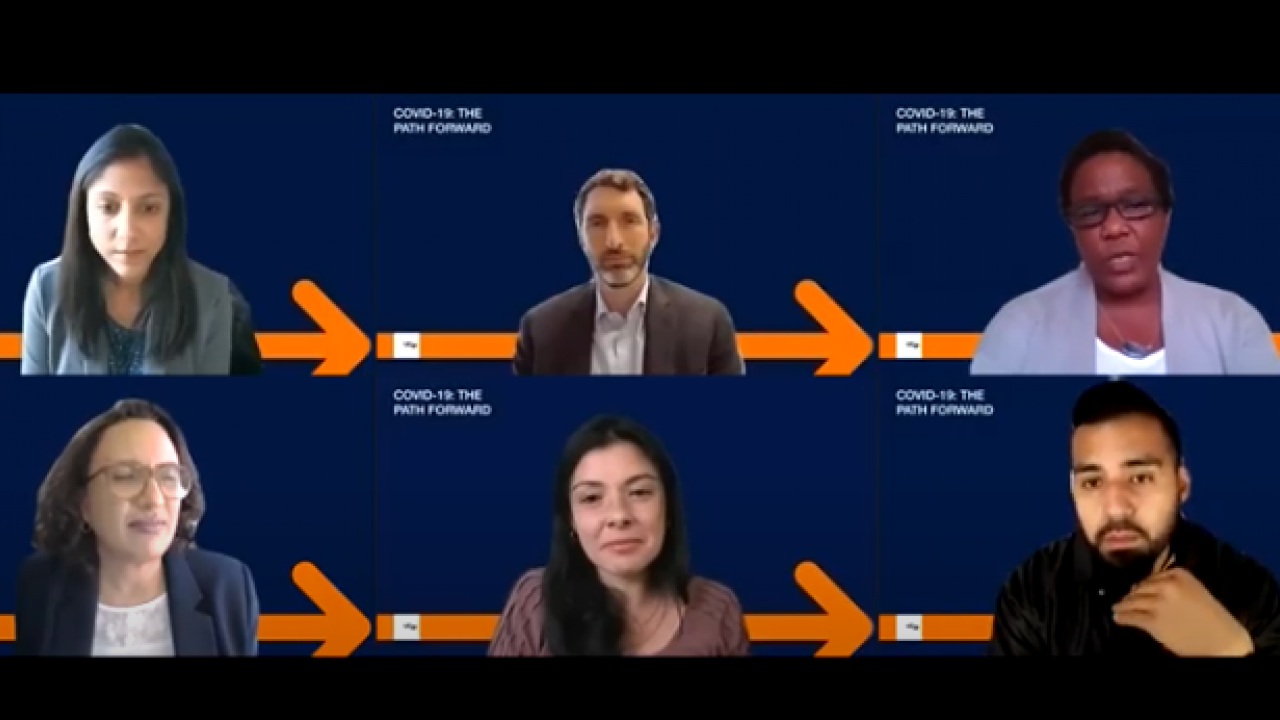
UCSF hosted a panel of public health officials, experts and advocates to hear how communities and nations can better address inequities with lessons after one year of the pandemic.
"If we maintain that kind of relationship where folks can turn to us and ask, ‘I have this problem and not sure how to solve it,’ we may not know how to solve it, but we certainly know a lot of people with a lot of resources.”
Dr. Kim Rhoads, director of the Office of Community Engagement at the Helen Diller Family Comprehensive Cancer Center, on seeing the real-time impact of community-led engagement around the pandemic.
COVID-19 has exposed many vulnerabilities in our society – fueling the spread of the virus and leaving questions about what comes next as the world emerges from the pandemic.
A panel of health experts and government officials addressed the myriad issues related to COVID-19, including health disparities before and during the pandemic, public partnerships, and how communities can better address inequities to prevent the next crisis.
The March 16 panel discussion included health experts from UC San Francisco and officials from the health departments of San Francisco and Alameda counties. The virtual event was the second of a three-part series, titled “COVID-19: The Path Forward.”
“The pandemic exposed the many vulnerabilities in our society, our inequities along age lines, along economic lines, along racial and ethnic lines,” said Kirsten Bibbins-Domingo, PhD, MD, MAS, Chair of UCSF’s Department of Epidemiology and Biostatistics, and moderator of the panel discussion. “These were all factors that fueled the spread of the virus, and then led to disproportionate harms to these same communities that also were experiencing the effects of the economic crisis.”
Nicholas Moss, MD, MPH, Health Officer for the Alameda County Public Health Department, said that there’s the pandemic that affects communities of color and health care workers, and then there’s the pandemic, less severe, that affects affluent communities.
An early sign of the racial and ethnic inequities emerged early-on in San Francisco at Zuckerberg San Francisco General Hospital and Trauma Center, said. Carina Marquez, MD, an assistant professor of medicine at UCSF. She said she saw that the majority of COVID-19 patients were Latino – many health workers or families of health workers. “It was very striking, and it was very early on,” she said.
An early UCSF partner was the Latino Task Force. Marquez said that UCSF brought testing and data collection, while the Task Force designed and led community outreach. “We have all learned to dance together,” said Jon Jacobo, the Task Forces’ Health Committee Chair. “At first there was a lot of stubbing of toes, but I think at this point, we can waltz, we can do some bachata, we can do a little bit of salsa, we can do it all.”
Jacobo said that community partnerships often start not with organizations meeting, but with individual health care workers reaching into communities with harm-reduction goals. “When you have those relationships, it allows the bridge of trust to be expanded a little bit,” he said. “Every time they’ve said they’re going to do A, B, and C, they deliver.”